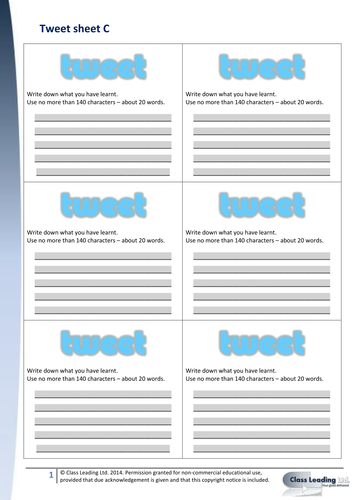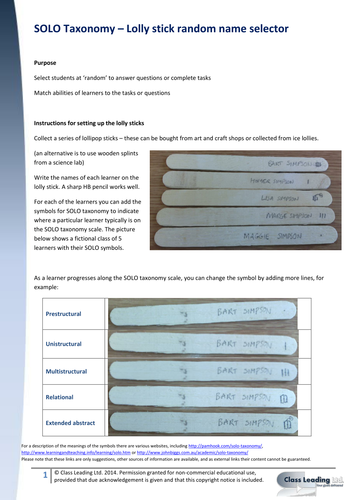314Uploads
259k+Views
194k+Downloads
Whole school

Planning for Progress Lesson Plan
Use this planning template to consolidate and reflect your thinking when planning lessons. The template is focused on supporting progress for all learners.
When using the plan it is suggested that you begin by populating the ‘Expected Learning Outcomes’ section first, then think about how you will find out what they know already and what you have learned. After this, think about the activities that they will do before, during and after the lesson, and finally everything else.
A word document and a pdf version are included.

Tweet Sheets - Summarising learning
This resource consists of three sheets, each of which is made up of 6 squares that can be cut out and given to learners. They can be used by learners to summarise their learning. This is ideal for the review phase (plenary) of a lesson or before the lesson with a flipped learning (classroom) approach.
There is a plain sheet and also versions to support neater writing by learners using an idea from dyslexia expert Neil Mackay. The highlighed version s help learners form neater letters in a similar way that half-way lined paper does. A grey version is included for B/W photocopying.

Workload Reduction - GREAT lesson planning
This is a lesson template and guidance document and is designed as a workload reduction tool for whole school use.
Many different subject areas and different phases have different requirements of lesson and lesson sequence planning. Across all subjects there are some common areas that are features of effective teaching, regardless of the subject. These are the features included in GREAT lesson planning.
This could be used as a short-term (lesson plan) or medium-term plan (scheme of learning that covers a sequence of lessons) depending upon the subject or context.

SOLO Taxonomy random name selector
This guide explains how you can select students at ‘random’ to answer questions or complete tasks and also match abilities of learners to the tasks or questions. It is a really effective way of differentiating tasks and questions. It offers more flexible ways of selecting names than purely random name generators.




